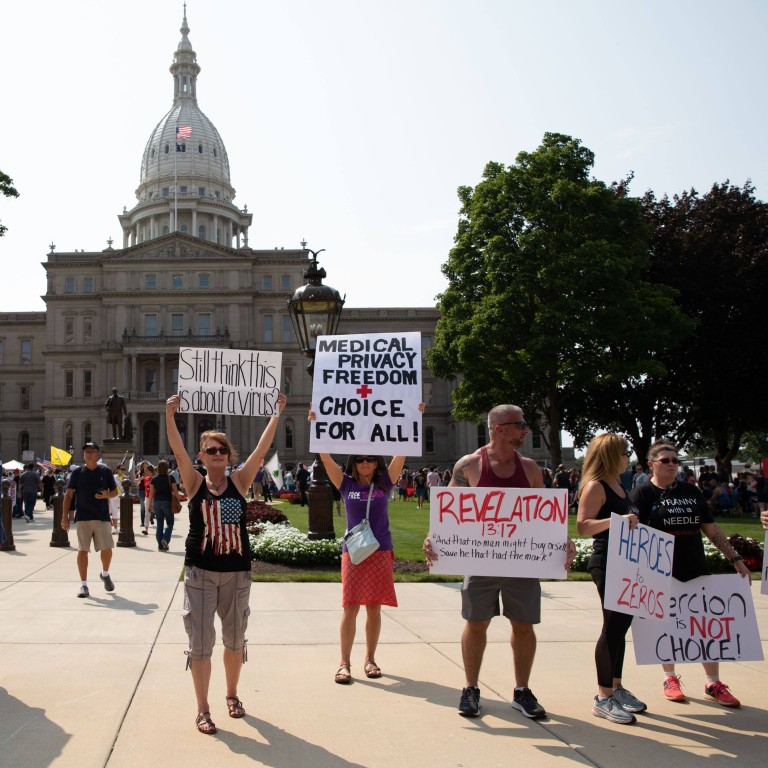
Global success in fighting flu shows a way out of coronavirus lockdowns
- Instead of obsessing about case numbers, our leaders should focus on the transition from surviving the pandemic to living with it
- Our success dealing with influenza show that once we are vaccinated and have masks on hand, the time has come to let us get on with our lives
The US Centres for Disease Control and Prevention says that since April last year, influenza cases have flatlined close to zero. Influenza deaths totalled about 700 during the entire 2020-21 flu season – which compares with 22,000 deaths during the 2020 flu season from January to March, and 34,000 deaths in the 2019 season.
The World Health Organization reports a similar flatlining. It estimates an annual average of 3 million to 5 million severe flu cases across the world every year and between 290,000 and 650,000 deaths. Examining survey data from the 14 months between November 2019 and the end of 2020, however, it found about 615,000 flu cases – 609,000 of them before April 2020 and just 5,730 cases in the nine months from April to December.
“Overall, the timing of annual global influenza circulation in 2020 differed from that of any season observed previously,” the WHO said. It differed in that the circulation disappeared.
Like helmets for motorcyclists, seat belts in cars and flotation jackets for canoeists, they might not prevent every fatality but are a common sense thing to wear. They are also a small inconvenience compared with the protection they deliver.
Hong Kong university to bar students and staff if unvaccinated or untested
But it is not just in hospitals, schools or care homes where it is reasonable to insist vaccination is mandatory. Can the viability of a business or the physical safety of clients, customers, employees and their families be put at risk by an employee who insists on the freedom not to be vaccinated? If I have to choose between flying United Airlines – which insists on all staff being vaccinated – and American Airlines, which does not, I know which airline I will choose.
The other political imperative is to gather as many lessons as possible from the pandemic before we forget them and to learn from them to ensure that the next pandemic is managed better. What are those lessons?
Because no one is safe from a pandemic until everyone is safe, we need more effective ways of ensuring that protection – whether through access to protective equipment or access to vaccines – is applied universally. National remedies simply cannot work.
If not for China, would the West even be tackling vaccine inequality?
When so many lives have been lost to the pandemic, surely it is unacceptable not to dedicate considerable billions of dollars to future early-warning preparedness, funding strategic reserves of protective equipment and funds to fast-track future development of vaccines?
Instead of obsessing about case numbers, our leaders should focus on the transition from surviving the pandemic to living with it. Once hospitals are no longer under pressure and people are no longer dying, policies should change.
For this, our approach to influenza provides a timely template. There is no need for draconian lockdowns or harmful quarantines. Once we are vaccinated and have masks on hand, the time has come to let us get on with our lives.
David Dodwell researches and writes about global, regional and Hong Kong challenges from a Hong Kong point of view



